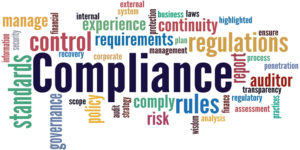Factoring crimes are a 'river topic'. The term itself is already beginning to function in legal circulation - it is enough to follow well the jurisprudence of the courts - especially sentences handed down in cases qualified under Article 286 of the Criminal Code. Below are examples of convictions that have been handed down in such similar cases (in some of which I myself participated in representing the wronged financial institution):
- Judgment of the District Court in Poznań (ref. III K 268/13) dated 12.06.2015;
- Judgment of the Court of Appeals in Warsaw (ref. II AKa 102/16) dated 13.04.2016;
- Judgment of the Court of Appeals in Warsaw (ref. II AKa 96/16) of 20.05.2016;
- Judgment of the District Court in Warsaw (ref. VIII K 63/13) dated 9.11.2015;
- Judgment of the District Court in Slupsk (ref. II K 81/13) dated 18.02.2014;
- Judgment of the Court of Appeals in Warsaw (ref. II AKa 252/12) of 8.10.2012.
The basic principle I impart at training sessions to factoring company employees is this: "It is the fraudster who is looking for the factor, not the fraudster's factor."
Thus, the greatest risk of 'fraud' occurs with inquirers previously unknown to the factor. Statistics don't lie. I suggest you track fraud cases in your own company. Fraud almost always happens where the customer seeks factoring, not where factoring seeks the customer. The principle of limited trust therefore applies to those directing factoring inquiries, especially online, bypassing face-to-face contact, by proxy, or by other questionable means. I have encountered in my work such obvious attempts to deceive factoring companies that they were verifiable from simply accessing the interested party's website, which looked as if it had been created for the purposes of an illegal procedure (fictitious information and business contracts, photos downloaded from the Internet intended to show the real appearance of board members or the company's headquarters, etc.).
However, one must not forget the second principle - which is an exception to the first - namely - "Opportunity makes the thief (here: the crook)". This means that also in a properly functioning factoring, with a various reasons factoring fraud can occur - especially when the initial stage of factoring was merely a form of putting people to sleep, building trust and financial history. At trainings I discuss cases of fraud in which, for example, the factor decided to cheat after 10 years of correct cooperation, only when a crisis arose. And this is just another principle -. "The propensity to cheat increases during a crisis.".
What are some examples of factoring scams?
- Fictitious invoice fraud. This is the basic type of factoring fraud. The invoice is simply forged, or was never accepted by the debtor. It often goes hand in hand with the falsification of the notice of assignment (ZOC), the WZ document / bill of lading and the appearance of fictitious persons on the debtor's side to confirm the invoice. I have already observed several varieties of this fraud. One variation involves the cancellation of an order / return of goods. Another involves issuing 2 invoices for each transaction - one real (to the recipient) and a fictitious (inflated) one to the factor, catching "mountains" and confirming the invoices by substituted third parties. Another variation is the so-called "lapping scheme," which is the concealment of the first fictitious invoice by producing another invoice and payment by deduction from the advance for the next invoice, until the fraud is detected.
- Ordinary fraud. It is not much different from defrauding a bank when extorting credit. Most often, the factor hides information about his real financial situation, conceals liabilities, gives fictitious income, hides other factoring, and sometimes falsifies the certificate of non-default, financial statements and other data. It occurs most often in incomplete factoring. This fraud is usually a prelude to other frauds.
- Duplicate factoring scam. It involves the factoring company concealing the existence of multiple factoring agreements with different factors for the same customers and presenting the same invoice(s) to several factors for financing. The goal is to obtain multiple payments for the same receivable. This is often accompanied by forgery and substitution of contact entities. The non-existence of a legal and transparent way for factories to exchange information about factoring customers and concluded contracts makes it difficult to detect fraud.
- Fraudulent invoice cancellation. Everything looks good on paper - a verified counterparty, a real history of transactions and even confirmation of the existence of receivables, and when the due date of the invoice arrives it turns out that the order has been canceled and an adjustment invoice has cleared it 'to zero'. This is one of the more difficult scams that occur (in terms of prevention). This is because it is not always realistic to win such cases against the debtors involved in the fraud. Often such fraud is accompanied by the insolvency of the factor (with incomplete factoring) - which can make a possible judgment late. In addition, contrary to their own belief, factoring companies do not have properly drafted legal documentation (e.g., terms and conditions, T&Cs) to effectively test its provisions before the Court in payment cases against the recipient involved in the fraud.
- Warranty fraud. Situation as above, except that instead of cancelling the invoice, the debtor (recipient) exercises its warranty rights (including either full or partial rescission of the contract) behind the back of the factor. Often in tandem with such a fraud goes the insolvency of the factor (with incomplete factoring).
- Carousel scam. It involves letting goods go to related parties, none of whom pay anyone, and ultimately the advance is paid only by the factor. The responsible parties (the consignee) and the factor are usually insolvent. The circulation of goods itself is either fictitious (forged WZ/PZ documents, etc.) or posed, however the economic sense of the transaction does not exist. The goods eventually most often return to the factor (from whom they usually came out only on paper) who is left with the factoring advance and the goods despite the fact that no costs were incurred.
- Identity fraud. This fraud involves stealing the identity of, for example, consignees and forging their signatures on notices of assignment of receivables, documents, and GMs.
- Distribution fraud was described in a separate article here.
Defense mechanisms
- Internal procedures (compliance);
- "Fraud-proof" documentation (regulations / ZoC, etc.);
- Training (from procedures / anti-fraud / sectoral);
- Learning from mistakes and analyzing internal and external cases;
- Feedback/whistleblowing - quick reporting of abuses, suspicions, gaps, alerts;
- Know Your Customer (KYC) - only a thorough understanding of the customer's business will enable the detection of possible fraud and abuse;
- Confrontation (tel., letters, termination of contract, reduction of limits, exclusion of contractor, securing evidence, etc.);
- Auditing the customer / requesting bank statements / documents;
- Monitoring of customers - their behavior, assets;
- Regular customer reviews;
- Customer contact;
- Programs;
- Hunch / instinct.
The general rule is PROVENANCE. What do new companies on the market (without a wealth of years of industry know-how) in particular forget? O training its employees from factoring fraud mechanisms, dangerous behavior alerts, etc. Why is this so important? Because factoring in Poland is growing at a gigantic pace, resulting in a shortage of specialists in the market and the need to recruit them from other industries and further educate and adapt them to work in factoring. Such individuals, therefore, do not have years of experience in fraud in the financial sector, especially in factoring, which have their own individual characteristics. Companies also start operations before developing well thought-out, even "fraud-proof" documents related to operations, especially such as terms and conditions / agreement / OWF, notice of assignment, confirmation of receivables. They also fail to introduce complinace systems. These loopholes are exploited by fraudsters.
The defensive measures used depend on the particular types of fraud. When it is too late for prevention - what counts is the prompt and active representation of the wronged company in both civil and criminal cases, including the skillful use of existing lease collateral, or the use of collateral in civil proceedings. In the case of insolvent entities - quick decision-making and dynamic response to the actions of the debtor is what gives the chance to minimize losses and even still make money on a seemingly lost transaction.
Of course, the above information is merely an introduction to the complex, creative and unfortunately dynamic world (or perhaps the so-called 'half-world') of factoring crimes.







